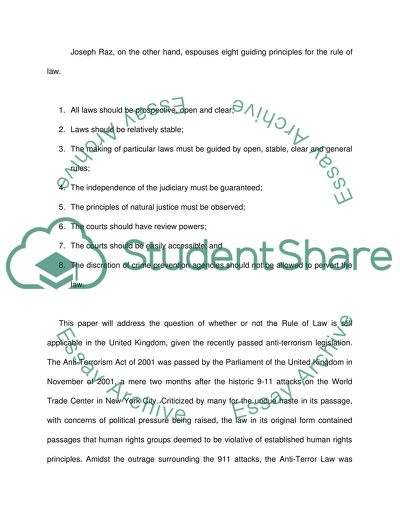Cite this document
(“Rule of Law Essay Example | Topics and Well Written Essays - 1500 words”, n.d.)
Retrieved from https://studentshare.org/law/1507479-rule-of-law-essay
Retrieved from https://studentshare.org/law/1507479-rule-of-law-essay
(Rule of Law Essay Example | Topics and Well Written Essays - 1500 Words)
https://studentshare.org/law/1507479-rule-of-law-essay.
https://studentshare.org/law/1507479-rule-of-law-essay.
“Rule of Law Essay Example | Topics and Well Written Essays - 1500 Words”, n.d. https://studentshare.org/law/1507479-rule-of-law-essay.


